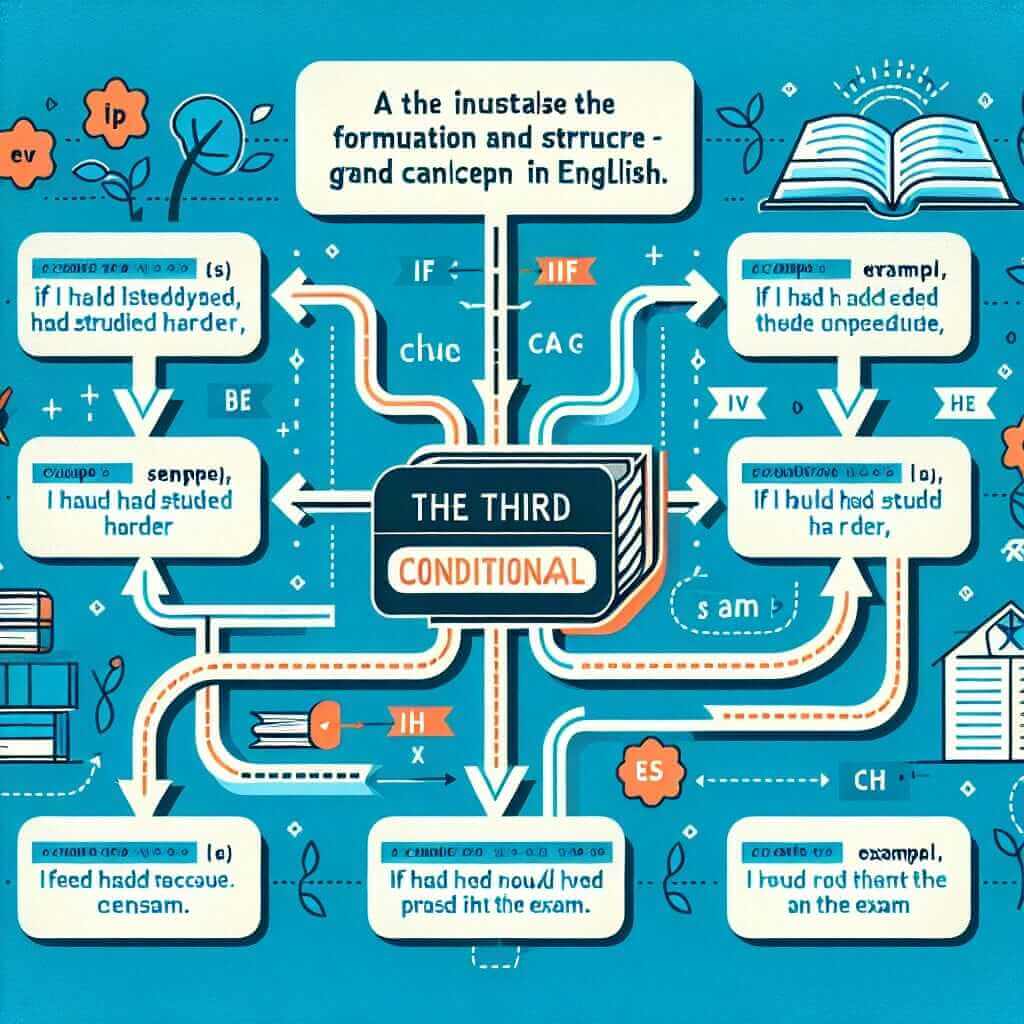The third conditional, often exemplified by the phrase “If I had known, I would have gone,” is a crucial grammatical structure for expressing hypothetical situations in the past and their imagined consequences. Mastering this structure can significantly enhance your performance in the IELTS exam, particularly in the Speaking and Writing sections where you’re expected to articulate complex ideas and hypothetical scenarios.
Let’s look at a few examples of how the third conditional might be used across different sections of the IELTS:
Speaking Part 2: “Describe a time you missed an opportunity.”
- “If I had known about the photography competition, I would have submitted my pictures.”
- Here, the speaker regrets missing a competition (past hypothetical situation) and imagines the action they would have taken (imagined consequence).
Writing Task 2: “Many people believe that technology has made our lives easier. To what extent do you agree or disagree?”
- “Some argue that if the internet had not been invented, our lives would be more stressful. However, this overlooks the many benefits…”
- In this example, the writer uses the third conditional to present a counter-argument about the invention of the internet (past hypothetical situation) and its imagined impact on stress levels (imagined consequence).
Listening: You might hear a speaker say something like:
- “I really regret not studying abroad in college. If I had gone to Spain, maybe I would be fluent in Spanish by now.”
These examples illustrate the versatility of the third conditional in various IELTS contexts.
Understanding the Third Conditional
The third conditional allows us to discuss how things might have been different in the past. It consists of two clauses:
- If clause (past perfect): This clause presents the hypothetical past condition. It uses the past perfect tense (had + past participle).
- Main clause (would have + past participle): This clause expresses the imagined consequence in the past. It utilizes “would have” followed by the past participle of the main verb.
Formula: If + subject + had + past participle, subject + would have + past participle.
Examples:
- If I had studied harder, I would have passed the exam.
- She would have called you if she had known your number.

Using the Third Conditional in the IELTS Exam
Speaking:
- Part 1: While the first and second conditionals are more common in Part 1, you can subtly weave in the third conditional when discussing past experiences. For instance, if asked about your favorite subject in school, you might say: “I enjoyed history, but if I had known how important coding would become, I might have chosen to study computer science.”
- Part 2: The third conditional is highly effective in narratives about missed opportunities, regrets, or past events that shaped your perspective.
- Part 3: This part often involves discussing hypothetical scenarios related to the topic in Part 2. Here, the third conditional can be used to analyze past trends or speculate on alternative outcomes.
Writing:
- Task 1 (if describing a process that occurred in the past): While not as frequent, you might use the third conditional to highlight a point. For example, when describing a manufacturing process: “If the temperature had been higher at this stage, the final product would have been stronger.”
- Task 2: This is where the third conditional truly shines. You can employ it to present counter-arguments, discuss historical events and their hypothetical impacts, or analyze the consequences of different choices.
Mastering the Third Conditional for a Higher Band Score
To impress the examiner and achieve a higher band score, consider these tips:
- Mix it up: Don’t overuse the third conditional. Instead, combine it with other grammatical structures to demonstrate your range.
- Inversion: For a more formal tone, consider inverting the subject and auxiliary verb in the “if” clause. For example: “Had I known about the traffic, I would have left earlier.”
- Modal verbs: Replace “would” with other modal verbs like “could,” “might,” or “should” to express different degrees of certainty. For example: “If I had left on time, I could have caught the train.”
Common Mistakes and How to Avoid Them
-
Incorrect tense in the “if” clause: Remember to use the past perfect (had + past participle). Don’t use “would have” in the “if” clause.
- Incorrect: If I would have known, I would have gone.
- Correct: If I had known, I would have gone.
-
Using “will” instead of “would”:
- Incorrect: If I had studied harder, I will have passed.
- Correct: If I had studied harder, I would have passed.
Conclusion
The third conditional is a powerful tool for expressing hypothetical situations in the past and their imagined consequences. Mastering this structure can significantly enhance your IELTS performance, enabling you to articulate complex ideas, present counter-arguments, and engage in more sophisticated discussions. By understanding its form, practicing its use, and being aware of common errors, you can confidently incorporate the third conditional into your IELTS responses and achieve your desired band score.